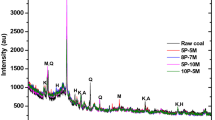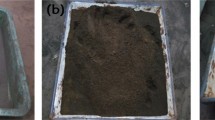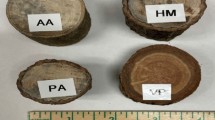Abstract
A. F. JOSEPH and B. W. Whitfield1 described in 1921 the production of charcoal briquettes made from Sudan woods. They used as binder gum arabic or sorghum flour, both of which are available locally. Such briquettes are satisfactory for firing a stationary boiler, but are quite unsuitable as locomotive fuel. For this use 20–25 per cent volatile matter is needed; furthermore, the briquettes have to withstand the severe conditions within the locomotive fire-box where, if the briquettes are weakly bound, forced draught and shaking may cause loss of fuel and where high temperature may produce clinker. On the instructions of Dr. J. D. Tothill, director of agriculture and forests, Sudan Government, work was resumed with the war-time object of finding a locally produced substitute for coal needed by the Sudan railways.
This is a preview of subscription content, access via your institution
Access options
Subscribe to this journal
Receive 51 print issues and online access
$199.00 per year
only $3.90 per issue
Buy this article
- Purchase on Springer Link
- Instant access to full article PDF
Prices may be subject to local taxes which are calculated during checkout
Similar content being viewed by others
References
Joseph, A. W., and Whitfield, B. W., J. Soc. Chem. Ind., 15, 190 (1921).
Searle, A. B., "Refractory Materials" (C. Griffin and Co., Ltd., 1917), 48.
Author information
Authors and Affiliations
Rights and permissions
About this article
Cite this article
GREENE, H., JEWITT, T. Charcoal Briquettes as Locomotive Fuel. Nature 154, 58–59 (1944). https://doi.org/10.1038/154058a0
Issue Date:
DOI: https://doi.org/10.1038/154058a0
Comments
By submitting a comment you agree to abide by our Terms and Community Guidelines. If you find something abusive or that does not comply with our terms or guidelines please flag it as inappropriate.



